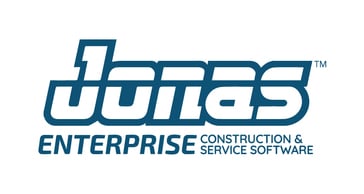Description

PENTA Construction Software

ServiceBox
Comprehensive Overview: PENTA Construction Software vs ServiceBox
PENTA Construction Software and ServiceBox are both prominent products in the construction and service management software markets. Here's a comprehensive overview of each, including a comparison of their market presence and differentiating factors:
a) Primary Functions and Target Markets
PENTA Construction Software:
- Primary Functions: PENTA Construction Software is designed to cater to the specific needs of construction companies with an emphasis on enterprise-level solutions. It provides functions like project management, financial management, human resources, equipment management, and field service management. PENTA is known for its integrated approach, offering a single platform to manage complex construction operations seamlessly.
- Target Markets: PENTA mainly targets large to mid-sized construction enterprises, including electrical and mechanical contractors, specialty contractors, and engineering firms. It particularly appeals to businesses that require sophisticated financial management capabilities and complex project tracking.
ServiceBox:
- Primary Functions: ServiceBox is a service management solution designed to streamline field service operations. It includes features like work order management, scheduling and dispatch, invoicing, customer relationship management, and mobile field access. The platform focuses on enhancing the efficiency and responsiveness of service teams.
- Target Markets: ServiceBox targets small to medium-sized field service businesses, including HVAC, plumbing, electrical, and equipment maintenance companies. It is particularly suited for businesses seeking a straightforward yet effective solution to manage their field operations and improve customer service.
b) Market Share and User Base
PENTA Construction Software:
- Market Share: PENTA holds a significant position in the enterprise construction software market, especially among large construction firms requiring comprehensive solutions for complex operations. However, due to its focus on larger organizations, its market share among small businesses is comparatively smaller.
- User Base: The user base of PENTA consists mainly of large enterprises and established construction firms with extensive operational needs. This includes a mix of specialty contractors and large construction service providers.
ServiceBox:
- Market Share: ServiceBox has a growing presence in the field service management software market, particularly among small to medium-sized businesses. It competes with other field service solutions by offering an accessible and user-friendly platform.
- User Base: ServiceBox's user base is diverse, primarily comprising small and medium-sized service companies. These users typically seek to improve field operations and customer service with a flexible and cost-effective solution.
c) Key Differentiating Factors
PENTA Construction Software:
- Enterprise Focus: PENTA is built for scale, designed to handle the complexities of large construction projects and operations with robust financial and project management tools.
- Integration Capabilities: The software excels in offering an integrated suite of features that cover all critical aspects of construction management within a single platform.
- Customization: PENTA allows for significant customization to meet the specific needs of industries and companies, offering more control over its functionalities.
ServiceBox:
- Simplicity and Ease of Use: ServiceBox is designed to be intuitive and easy for smaller businesses to adopt quickly without a steep learning curve.
- Mobility: The platform emphasizes mobile access, making it highly suitable for field technicians who need reliable, on-the-go software.
- Cost-Effectiveness: Positioned as a cost-effective solution, ServiceBox appeals to businesses with budget constraints that still require comprehensive service management capabilities.
In conclusion, while PENTA Construction Software is more robust and suited for large-scale enterprises, ServiceBox focuses on accessibility and efficiency for small to medium-sized service operations. Each product serves distinct market segments and provides features tailored to the specific needs of their users.
Contact Info

Year founded :
Not Available
Not Available
Not Available
Not Available
Not Available

Year founded :
2015
+1 888-727-4983
Not Available
Spain
Not Available
Feature Similarity Breakdown: PENTA Construction Software, ServiceBox
When comparing PENTA Construction Software and ServiceBox, it's important to conduct a detailed analysis to understand how these two products align in terms of features and where they differ. Here's a breakdown based on general knowledge of construction management software capabilities and typical offerings in the industry.
a) Common Core Features:
-
Project Management:
- Both platforms likely offer project management functionalities, including scheduling, task management, and progress tracking.
-
Financial Management:
- Expect features for budgeting, cost tracking, invoicing, and possibly integration with accounting systems.
-
Document Management:
- Management of construction documents, contracts, and files with capabilities for sharing and collaboration.
-
Work Order Management:
- Creating, assigning, and tracking work orders will be a core functionality for both.
-
Reporting and Analytics:
- Each platform will have reporting tools for insights into project performance, financials, and resource utilization.
b) User Interface Comparison:
-
PENTA Construction Software:
- Typically, enterprise-focused platforms like PENTA offer robust, feature-rich interfaces designed for detailed project and financial management with a focus on larger scale operations. Their UIs may initially feel more complex due to the depth of features.
- User interfaces here are generally tailored for industry professionals who require comprehensive functionality.
-
ServiceBox:
- Known for being user-friendly and might lean towards simplicity and ease of use, which supports quicker adoption, particularly in smaller businesses or specific service-focused segments.
- Its interface may prioritize service scheduling and on-field task management, catering to small-to-medium scale operations.
c) Unique Features:
-
PENTA Construction Software:
- Might offer advanced ERP features specific to large-scale or multi-site construction operations, including equipment management, labor costing, and comprehensive resource planning.
- Likely to have extensive customization options to fit complex organizational needs.
-
ServiceBox:
- Typically, features that support field service operations more specifically, such as GPS tracking for field technicians, mobile access for field team collaboration, and asset management, could be more developed.
- Enhanced scheduling and service dispatch features, appealing significantly to companies with a strong field service focus.
In summary, while both PENTA Construction Software and ServiceBox share core functionalities essential for construction management, they serve different niches within the industry. PENTA is likely oriented towards larger enterprises requiring deep integration and customization, whereas ServiceBox may cater more towards field service management with an emphasis on usability and mobility.
Features

Financial Management
Client Management
Resource Management
Project Management

Customer Management
Financial Tools
Project Management
Best Fit Use Cases: PENTA Construction Software, ServiceBox
Both PENTA Construction Software and ServiceBox are designed to cater to different needs within the construction and service industries. Here's a detailed look at their best fit use cases:
PENTA Construction Software
a) Best Fit Businesses or Projects:
- Large and Enterprise-Level Construction Firms: PENTA is especially suited for large general contractors, specialty contractors, and engineering firms that require robust project management capabilities.
- Complex Project Management Needs: It is ideal for projects that involve intricate regulatory requirements, multidimensional financial tracking, and extensive resource management, typical in sectors like infrastructure, heavy civil, and industrial construction.
- Multi-Location Operations: Companies with operations spread across various geographic locations can benefit from PENTA's capabilities in managing complex logistics, documentation, and compliance issues.
Industry Verticals and Company Sizes:
- Verticals: Heavy construction, industrial EPC (Engineering, Procurement, and Construction), electrical and mechanical contractors, and industrial service providers.
- Company Sizes: Medium to large enterprises with extensive project portfolios and advanced reporting requirements.
ServiceBox
b) Preferred Scenarios:
- Small to Medium-Sized Service Companies: ServiceBox is tailored for smaller organizations looking for a user-friendly solution to manage their field operations efficiently.
- Field Service Management: This software excels in scenarios where mobile access, scheduling, work order management, and invoicing are critical. It's ideal for businesses that provide maintenance, repairs, and installations.
- Growing Service Providers: Companies aiming to streamline operations and improve field-to-office communication without the complexity needed by larger enterprises will find ServiceBox beneficial.
Industry Verticals and Company Sizes:
- Verticals: HVAC, plumbing, electrical services, and other skilled trade services.
- Company Sizes: Small to mid-sized companies that prioritize mobility, simplicity, and effective customer service management.
In summary, PENTA Construction Software is best for larger firms handling complex, large-scale projects requiring integrated management solutions, while ServiceBox targets smaller service companies needing efficient field service operations. Both cater to their respective markets by offering specialized features tailored to industry-specific challenges and company sizes.
Pricing

Pricing Not Available

Pricing Not Available
Metrics History
Metrics History
Comparing undefined across companies
Conclusion & Final Verdict: PENTA Construction Software vs ServiceBox
When evaluating PENTA Construction Software and ServiceBox, it is crucial to consider their features, usability, cost, customer support, and integration capabilities. Here's a conclusion and final verdict based on these factors:
Conclusion and Final Verdict:
a) Best Overall Value:
- ServiceBox often provides better value for small to mid-sized service-based businesses due to its user-friendliness, affordability, and comprehensive feature set tailored for field service management.
- PENTA Construction Software tends to offer greater value for larger construction firms requiring extensive project management, accounting, and enterprise-level features.
b) Pros and Cons:
ServiceBox:
- Pros:
- Highly intuitive and user-friendly interface, making it ideal for businesses without dedicated IT staff.
- Strong features for scheduling, dispatching, and customer management.
- Cost-effective for small to medium businesses.
- Good customer support and ease of implementation.
- Cons:
- Might lack advanced features required for larger or more specialized construction projects.
- Limited integration options compared to more enterprise-focused solutions.
PENTA Construction Software:
- Pros:
- Comprehensive suite of tools for managing complex construction projects, including robust accounting, project management, and resource planning modules.
- Scalable and customizable to meet the needs of larger organizations.
- Advanced reporting and data analytics capabilities.
- Cons:
- Steeper learning curve due to its complexity and vast array of features.
- Higher cost, which might not be justifiable for smaller businesses.
- Implementation process can be more lengthy and resource-intensive.
c) Specific Recommendations:
-
For Small to Mid-Sized Businesses:
- If you're primarily focused on ease of use, affordability, and you need efficient management of field operations, ServiceBox is often the better choice.
- It’s best for companies that primarily require scheduling, dispatch, and basic management functionalities.
-
For Large Construction Firms:
- If your company requires extensive project management and accounting capabilities, integrated resource management, and advanced reporting, PENTA Construction Software is more suitable.
- Companies with dedicated IT teams and complex business processes will benefit from PENTA's robust functionalities.
-
Consider Business Needs and Growth:
- Evaluate your current and future business needs. If you anticipate significant growth or diversification into large-scale projects, investing in a more comprehensive system like PENTA can prepare you for future demands.
- Conversely, if you need rapid deployment and immediate return on investment with simpler operations, ServiceBox is the optimal choice.
Ultimately, the decision should align with your business size, industry requirements, and long-term strategic goals. Conducting a detailed needs assessment and possibly a trial of both products can also provide additional clarity in making the final decision.
Add to compare



